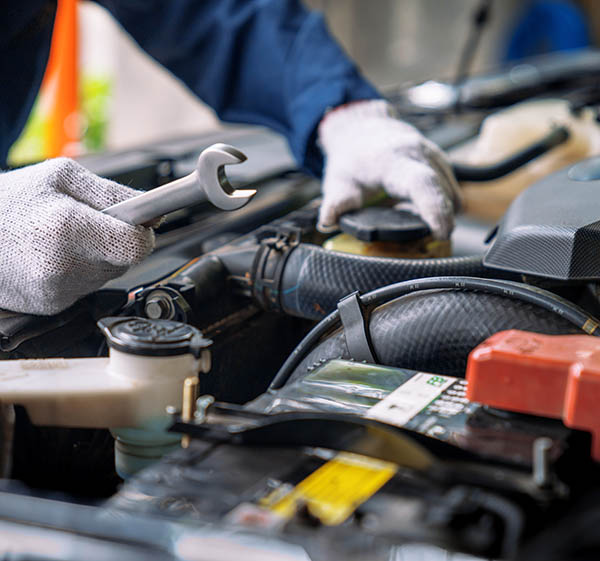Workers' Comp Coverage for Auto Mechanics
Pay as you go
Improve cashflow and reduce the potential for big audit bills.
Comparison Pricing
Get quotes from multiple insurance companies to ensure the lowest rates.
Claims Management
Our carriers have experienced claim managers to close claims quickly.
Workers' Compensation Codes Related to Auto Maintenance
Employees are grouped into classification codes based on their job duties and work functions. The National Council on Compensation Insurance (NCCI) currently utilizes nearly 800 class codes to help insurance companies and agents categorize employees for rating purposes. Insurance companies set a base manual rate for each class code in order to begin pricing a policy.
Properly classifying workers is an important part of the quote process. Mis-classified employees can cost small businesses thousands of dollars. You could end up paying too much for coverage or owing more money after an annual audit.

Class Code 8380
Automotive Repair
Auto repair is a broad classification for worker' comp and typically applies to service stations and gas stations that perform repair or service work. This includes batteries, tires, oil changes, tune-ups, transmission work and more. This class also includes specialty shops such as muffler shops and brake repair. Code 8380 also applies to employees working for new and used auto dealers and includes mechanics, parts, and service writers. Additional types of auto shops associated with this code include tire dealers. car washes, glass replacement, and window tinting.
Class Code 8380
Auto Body Repair Shop
Auto body repair is applicable for businesses engaged in the body repair of automobiles using metal, fiberglass, and plastics. This classification includes upholstering, painting, and dent repair. Paint only operations typically fall under class code 9505- Auto Painting.
Class Code 3821
Automobile Recycling
The code for auto recycling and driver applies to salvage yard operations where wrecked vehicles are salvaged for parts. It includes the dismantling or crushing of all types of automobiles.
Class Code 3632
Automotive Machine Shop
Auto machine shops cover separate operations whereas parts are manufactured, fabricated, or rebuild while not attached to any vehicle. This code includes the repair of engines, inboard/outboard motors, and other small engine repairs.
Alternative State Class Codes for Auto Repair:
Sometimes a state will deviate from the industry class code recommended by NCCI. Instead of the NCCI code, they may require the utilization of a state specific class code for certain business segments.
Related: auto repair shop, auto body repair, brake and muffler shop, auto salvage, gas station, oil change and lube centers, mechanic, transmission repair, mobile glass repair, car detailing, mobile car wash, tire dealer.
How Does Workers' Comp Work?
Workers' comp coverage protects employees when injured. It makes good financial sense for both parties.
- Loss of income for employees unable to perform job duties
- Medical expenses for employees injured on the job
- Retraining expenses for employees unable to return
- Permanent injury or disability for lasting injuries
- Survivor benefits if employees are killed on the job
Coverage does not protect employers from everything. Sometimes employees and employers can be negligent.
- Injuries resulting from a violation of the law
- Incidents resulting from employees' use fo drugs or alcohol
- Injuries that did not occur in connection with the job
- Clear company policy violations
- Injuries that did not occur in connection with the job
How Much Does Auto Repair Shop Insurance Cost?
The average rate our customers pay for workers’ compensation under the auto repair class code is around $1.29 per $100 of payroll. The average cost for a general liability insurance policy is about $950.00.
- Work Comp is priced based on payroll
- Your state and EMR Rating will affect your cost
- The type of repair work can modify rates
- Premium discounts and policy credits may apply
- GL rates are based on sales (rated per $1000)
- Gross revenue may affect pricing
- The type of repairs matters to underwriters
- Prior clams and years in business affect pricing
- SIC codes vary by industry
How do I get started?
Here's what we need from you
- Business details, locations, FEIN or SSN
- Estimated annual payroll and job duties- class codes
- Claims info or loss history- if applicable
What Happens Next?
We go find for your best price
- Our software matches you with top-rated carriers
- Our agents apply and negotiate your lowest rates
- We present and recommend your best options


